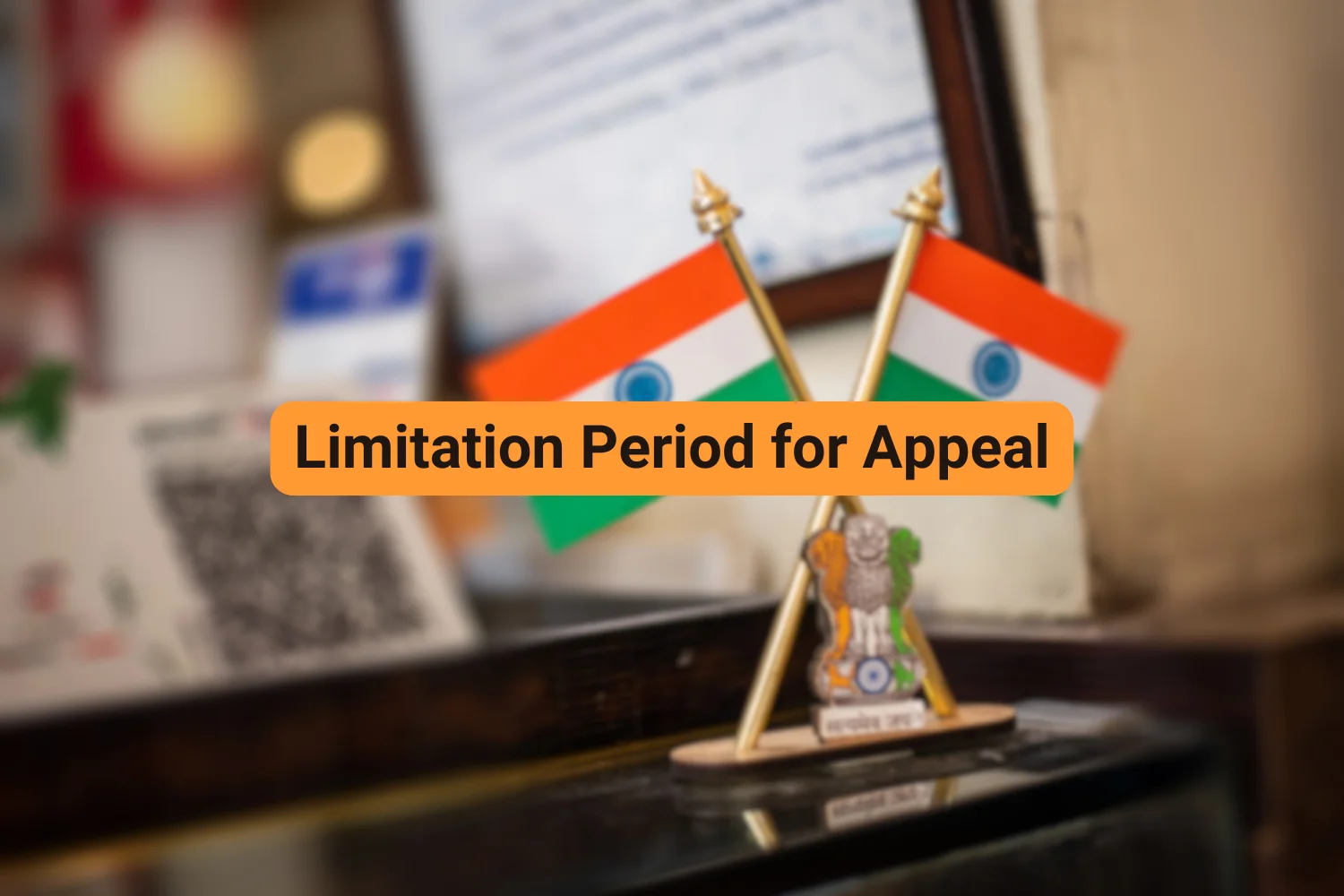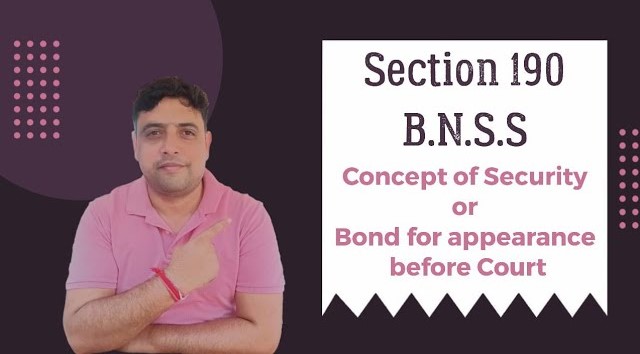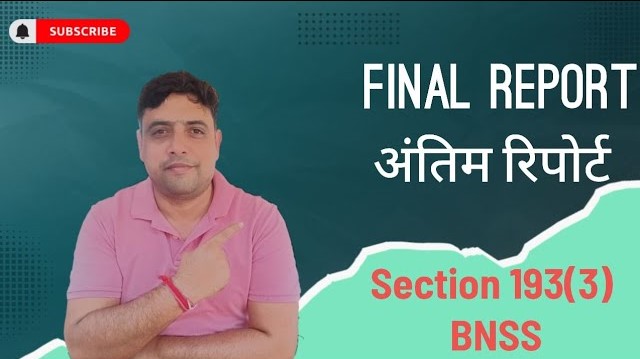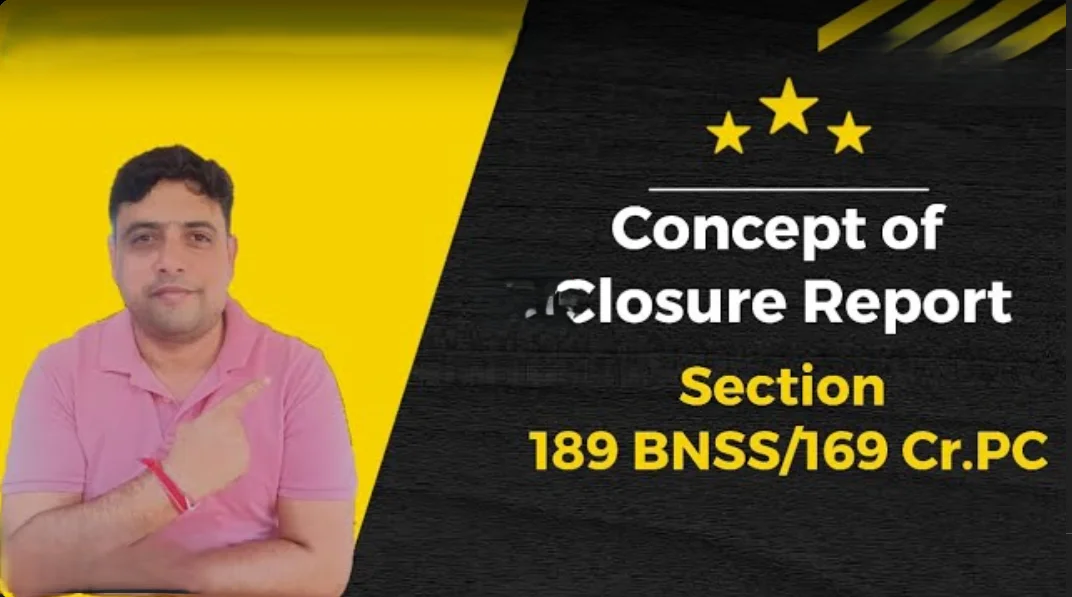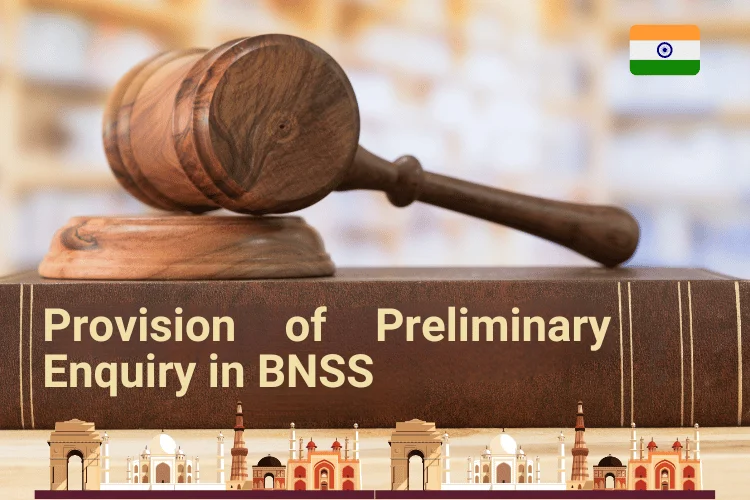PROFESSIONAL MISCONDUCT WITH LANDMARK CASE LAWS
INTRODUCTION
An advocate is a respected and important member of society, and their actions set an example for others. To maintain the integrity of the legal profession, advocates must adhere to certain standards of conduct. Unacceptable behavior, known as professional misconduct, includes dishonest or disgraceful actions that harm the reputation of the profession. The legal profession is a noble and respected field that requires its members to act with integrity and strive for justice. Advocates have a significant responsibility to society and must earn and maintain the trust of their clients. They are expected to be sincere, respectful, and diligent in their work, and any violation of ethical principles is considered unacceptable. Advocates must also uphold the standards of professional conduct set by the Bar Council of India and serve as role models for junior members of the profession.
Professional misconduct refers to the behavior of an advocate that falls short of the standards of conduct expected of them. It includes actions that are considered unbecoming, dishonest, or disgraceful, and can bring disrepute to the legal profession.
According to Section 35(1) of the Advocates Act, 1961, professional misconduct includes:
- Unprofessional conduct
- Unbecoming conduct
- Dishonest conduct
- Disgraceful conduct
- Breach of professional ethics
- Breach of rules and standards prescribed by the Bar Council of India or the State Bar Council
Examples of professional misconduct may include:
- Misconduct in legal proceedings
- Dishonesty or fraud
- Breach of confidentiality
- Unprofessional dealings with clients or colleagues
- Conviction for a criminal offense
- Violation of the Advocate's oath
The State Bar Council has the power to investigate and discipline advocates for professional misconduct, and may refer cases to a disciplinary committee for disposal.
The Andhra Pradesh High Court's ruling in "In the matter of Mahboob Ali Khan" provides a clear definition of "misconduct" in the context of professional ethics. According to the court, misconduct refers to:
- Acts done with a wrong intention
- Unprofessional acts, even if they are not inherently wrongful
- Dereliction of duty
- Deviation from duty
This definition highlights that misconduct is not limited to illegal or criminal actions, but also includes unprofessional behavior, negligence, or deviation from expected standards of conduct. This ruling sets a precedent for understanding the scope of professional misconduct and its implications for advocates and other professionals.
LAW COMMISSION REPORT
The Law Commission of India in its 266th report has recommended following definition of Professional Misconduct:
"Misconduct includes an act of an advocate whose conduct is found to be in breach of observance of the standard of professional conduct for etiquette (required) to be (observed by an advocate; or forbidden act; or an unlawful behaviour; or disgraceful and dishonourable conduct; or neglect; or not working diligently and criminal breach of trust or any of his conduct incurring disqualification under section 24A.
SPECIFIC CASES ON PROFESSIONAL MISCONDUCT
- Misappropriation of Client's Money: Lawyers have a high ethical obligation to handle client funds responsibly. Misappropriation of client money is a serious offense with severe consequences. It can lead to disciplinary action, including removal from the profession.
There is a case of Harish Chandra Tiwari v. Baiju that highlights the severe consequences a lawyer faces for misappropriating a client's money.
Facts:The advocate (Tiwari) withdrew compensation awarded to his client (Baiju) for land acquisition. He neither returned the money nor informed Baiju about receiving it.
Court's Holding:The Court considered this a case of gross misconduct. Misappropriation of client funds was deemed one of the gravest offenses a lawyer can commit and further held that Lawyers handle client money in a fiduciary capacity, meaning they hold it in trust. Misappropriation is akin to a public servant stealing money, a serious crime.
Consequences:
- The Court ordered Tiwari's removal from the roll of advocates.
- This decision protects the legal profession by preventing such misconduct.
- Bribing a judicial Officer : Bribing officer or Court of law is a serious misconduct.
Case: Shambhu Ram Yadav v. Hanuman Das Khatry 2001 SC
Facts:
- Respondent, an advocate, wrote a letter to his client suggesting the judge hearing the case accepts bribes
- Respondent demanded Rs. 10,000 from his client to bribe the judge
- Respondent admitted to the demand
Proceedings:
-
- Complaint filed with State Bar Council
- Disciplinary Committee suspended respondent's license for 2 years
- Respondent appealed to Bar Council of India (BCI)
- BCI enhanced punishment and removed respondent's name from the roll of advocates
- Respondent filed review petition under Section 44 of the Advocates Act
- Review petition allowed, and respondent was reprimanded instead of being disbarred
- Appeal filed to the Supreme Court
Outcome:
- Supreme Court upheld the order of removal from the roll of advocates.
- Breach of Trust and Confidence: There are two cases that underscores the importance of ethical conduct in the legal profession and the severe consequences of breaching client trust. It also highlights the judiciary's role in upholding professional standards and protecting the public's confidence in the legal system.
Vikas Deshpande v. BCT 2003, In this case the appellant, a practicing lawyer, committed serious misconduct by getting the complainants to sign and provide thumb impressions on blank paper, pretending it was for filing an appeal. These complainants had been sentenced to death for murdering six people and were defended by a court-appointed lawyer because they were very poor. Deshpande breached their trust by using a Power of Attorney to sell their land and take the money for himself. A complaint was filed with the State Bar Council of Maharashtra and Goa under Section 35 of the Advocates Act, 1961. However, since the State Bar Council couldn't finish the proceedings within a year, the complaint was transferred to the Bar Council of India under Section 36B of the Act. The Disciplinary Committee found Deshpande guilty of gross professional misconduct and ordered the State Bar Council to remove his name from the list of advocates. Deshpande appealed to the Supreme Court under Section 38 of the Act, but the Court dismissed the appeal and upheld the Bar Council's decision. The Court stressed that the relationship between a lawyer and their client is based on trust, which is essential for the judicial system to function. Misconduct like this not only harms the guilty lawyer but also undermines public confidence in the legal system. The Supreme Court urged Bar Councils to address such issues promptly to prevent further damage.
In an another case which is as follows :
Case: Chander Prakash Tyagi v. Benarsi Das (Dead) (2015)
Facts:
-
- Appellant Chander Prakash Tyagi was an advocate who represented client 'A' in a case for appointment of guardian of minor.
- The case was dismissed for non-prosecution due to alleged improper conduct of proceedings by the appellant.
- The appellant later accepted the brief of the opponent party against client 'A'.
Proceedings: A complaint was filed with the Bar Council of India (BCI).
- The Disciplinary Committee held the appellant guilty of violating Rule 33 of Section II, Part VI of BCI Rules.
- The appellant's license was suspended for one year.
- The appellant was directed to pay a cost of Rs. 2,000/.
- The appellant filed an appeal to the Supreme Court.
- The Supreme Court upheld the order of BCI.
Outcome:
- The appellant's license was suspended for one year.
- The appellant was directed to pay a cost of Rs. 2,000/.
Violations:
- Violation of Rule 33 of Section II, Part VI of BCI Rules (conducting the case of an opponent party against a former client).
- Refusal to return Client Papers
Refusal to return client papers is a serious breach of professional conduct for lawyers, as it undermines the fundamental principles of trust and confidentiality that underpin the lawyer-client relationship. When a lawyer refuses to return client papers, they are essentially holding hostage the client's personal and sensitive information, causing significant stress, inconvenience, and potentially even financial loss. This misconduct not only harms the client but also brings disrepute to the legal profession as a whole.
In the case of R.D. Saxena v. Balram Prasad Sharma, R.D. Saxena was a practicing lawyer in Bhopal and served as the legal advisor to the Madhya Pradesh State Co-operative Bank Ltd. from 1990. However, on July 17, 1993, the Bank ended his retainership and asked him to return all their case files. Instead of returning the files, Saxena sent the Bank a bill for ₹97,100, claiming it was the unpaid amount for his legal services. He told the Bank he would return the files only after they paid him.
The Bank filed a complaint against Saxena with the State Bar Council. When the State Bar Council couldn't resolve the case within a year, it was transferred to the Bar Council of India (BCI) under Section 36B of the Advocates Act, 1961. The BCI's Disciplinary Committee found that Saxena's refusal to return the files amounted to professional misconduct under Section 35 of the Act. They barred him from practicing for 18 months and fined him ₹1,000.
Saxena appealed to the Supreme Court. The Court ruled that clients must have the freedom to change their lawyers if they feel their interests are not being properly represented. It is a professional duty for a lawyer to return the client's papers if the client decides to hire a new lawyer. However, because the legal rules on this matter were not clear due to conflicting High Court decisions, the Supreme Court decided not to impose a severe punishment on Saxena. Instead, they reprimanded him. The Court also warned that in the future, any lawyer committing similar misconduct would face stricter punishment, and Saxena's lighter punishment should not be seen as a precedent.
- Fraudulent conduct of advocate
In the case of Devendra Bhai Shankar Mehta v. Rameshchandra Vithaldas Sheth, the appellant, Devendra Bhai Shankar Mehta, appealed under Section 38 of the Advocates Act, 1961, against an order from the Bar Council of India (BCI). The BCI had found him guilty of professional misconduct for defrauding prospective loan applicants in collusion with a financier. The Disciplinary Committee of the BCI determined that Mehta, in connivance with the financier, defrauded the complainant by collecting large sums of money under the pretext of legal expenses and other costs for a proposed loan, which was never actually provided.
As a result, the Disciplinary Committee ordered the removal of Mehta's name from the roll of advocates. In his appeal to the Supreme Court, Mehta argued that being associated with a dishonest person should not be grounds for holding him guilty of misconduct. He claimed that the Disciplinary Committee's decision was based on speculation.
However, after reviewing the evidence, the Supreme Court concluded that Mehta was not merely an advisor but an active participant in the fraudulent scheme orchestrated by the financier. The Court expressed disappointment that a member of the legal profession engaged in such calculated fraudulent activities for financial gain at the expense of an innocent person. The Court emphasized that an advocate, licensed under the Advocates Act, 1961, is expected to uphold high standards of morality and legal ethics. This was not a case of mere negligence or a lapse in duty but a deliberate misuse of the trust placed in him. Therefore, the Court upheld the decision to remove Mehta's name from the roll of advocates, emphasizing that such behavior undermines the integrity of the legal profession.
- Grave Negligence
The Supreme Court of India has held that mere negligence on the part of an advocate does not amount to professional misconduct. However, a wilful and callous disregard for the interests of the client may be characterized as conduct unbefitting an Advocate.
In the case of In the Matter of Mr. P , an Advocate, 1963 the advocate was paid Rs. 500 by his client for filing Bill of Costs and vouchers, which had to be filed within six months from the date of the judgment. But in spite of repeated reminders, the advocate failed to file the Bill of cost on time and consequently the client had to bear a cost of Rs. 2000.
The Court held that the advocate's negligence was gross and amounted to professional misconduct. The Court ordered the advocate's name to be removed from the rolls for a period of five years.
In the case of T.A. Kathiru Kunju v. Jacob Mathai 2017, the Supreme Court reviewed the Bar Council of India's (BCI) decision to reprimand and fine a lawyer for gross negligence. The lawyer had been found guilty by the BCI for not following the client's instructions in pursuing a debtor for default. Instead of proceeding under Section 138 of the Negotiable Instruments Act, he filed a criminal complaint.
Additionally, the lawyer lost the cheque that the client had handed over to him.
The Supreme Court, however, set aside the BCI's decision, ruling that the lawyer's actions did not constitute gross negligence. The Court noted that the lawyer's conduct amounted to negligence, but emphasized that errors of judgment are a part of human affairs and cannot be completely avoided. Therefore, the Supreme Court concluded that the lawyer's actions were not severe enough to warrant the punishment imposed by the BCI.
- Failure to attend the Court
Case: Pandurang Dattatraya Khandekar v. Bar Council of Maharashtra
Held: The Supreme Court emphasized the critical ethical responsibilities of an advocate towards their client, including:
-
- An advocate stands in a loco parentis (in the place of a parent) relationship with their clients
- An advocate must follow professional ethics and protect their clients' interests
- A lawyer's paramount duty is to their client, who is entitled to receive disinterested, sincere, and honest treatment
- It is against professional ethics for a lawyer to be absent from court when their client's case is called for hearing or further proceedings
Rationale: The Court highlighted the importance of advocates attending court sessions and diligently representing their clients, as they hold a position of trust and have a duty to protect their clients' interests.
Violation: Failure to attend court sessions when a client's case is called for hearing or further proceedings is a violation of an advocate's ethical responsibilities.
Significance: This case underscores the obligation of advocates to prioritize their clients' interests and attend court sessions to ensure fair representation.
- Misbehaviour in the Court
Case 1: In re: Vinay Chandra Mishra's Case
Facts: A senior advocate, who was also the President of the Bar association and Chairman of Bar Council of India, misbehaved with and intimidated a Judge of the High Court.
Held: The Supreme Court suspended his license to practice for three years, considering his position in the Bar and the gravity of his misconduct.
Rationale: The Court observed that if a senior member of the profession behaves in such a manner, it sets a bad example for other advocates.
Case 2: Hikmat Ali v. Ishwar Prasad Arya & Ors
Facts: A practicing advocate in Uttar Pradesh assaulted his opponent with a knife and fired a pistol shot. He also forged a document purported to be from the Home Ministry, Lucknow, to suspend his conviction.
Held: The Supreme Court ordered the removal of his name from the State roll of advocates, considering the gravity of his misconduct.
Rationale: The Court observed that the respondent's actions rendered him unworthy of remaining in the legal profession.
Both cases highlight the importance of maintaining ethical standards and decorum in the legal profession, and the consequences of misbehavior and misconduct by advocates.
- Advocate purchasing property in dispute
Case: P.D. Gupta v. Ram Murti and another (1998)
Facts:
-
- P.D. Gupta, a practicing advocate, represented Vidyawati in a property inheritance case.
- Despite knowing about the disputed title, Gupta purchased a part of the property.
- His son-in-law also purchased another part of the property.
- Gupta sold the property he purchased and made a profit.
- A complaint was filed with the State Bar Council of Delhi, which was later transferred to the Disciplinary Committee of the Bar Council of India (BCI) under Section 36B of the Advocates Act, 1961.
Held:
-
- The BCI's Disciplinary Committee found Gupta's conduct unbecoming of a lawyer and against professional ethics.
- The Committee suspended Gupta from practice for one year as an exemplary punishment.
- The Supreme Court upheld the order, dismissing Gupta's appeal.
Rationale:
-
- The Court observed that a lawyer has a commanding status and can exert influence on their client.
- It is common knowledge that lawyers have started contracting with clients and entering into bargains that share the result in case of success.
- While there is no bar for a lawyer to purchase property, a law-knowing person will avoid purchasing property with a disputed title due to common prudence.
This case highlights the importance of maintaining ethical standards and avoiding conflicts of interest in the legal profession. Advocates must not exploit their clients or engage in unbecoming conduct, and the Bar Councils have the power to discipline erring lawyers to maintain the integrity of the profession.
- Solicitation of work
The case of Bar Council of Maharashtra v. M.V. Dhabolkar (1976) is a landmark judgment on the issue of solicitation of work by advocates. The Supreme Court upheld the disciplinary action taken by the Bar Council of Maharashtra against advocates who were found guilty of soliciting work and engaging in unbecoming conduct, including physical fights and undercutting fees, to secure clients.
The Court emphasized the importance of maintaining professional standards and dignity in the legal profession, and held that solicitation of work by advocates is a form of professional misconduct that undermines the integrity of the Bar. The Court directed the Bar Council of India to identify the delinquents and deal with them accordingly, to maintain the standards befitting the National Bar in a dignified and deterrent manner.
The key takeaways from this case are:
- Solicitation of work by advocates is a form of professional misconduct.
- Advocates must not engage in unbecoming conduct, including physical fights and undercutting fees, to secure clients.
- The Bar Councils have a duty to maintain professional standards and discipline erring advocates to uphold the integrity of the Bar.
- The Supreme Court has the power to intervene and direct the Bar Councils to take appropriate action against advocates found guilty of professional misconduct.







